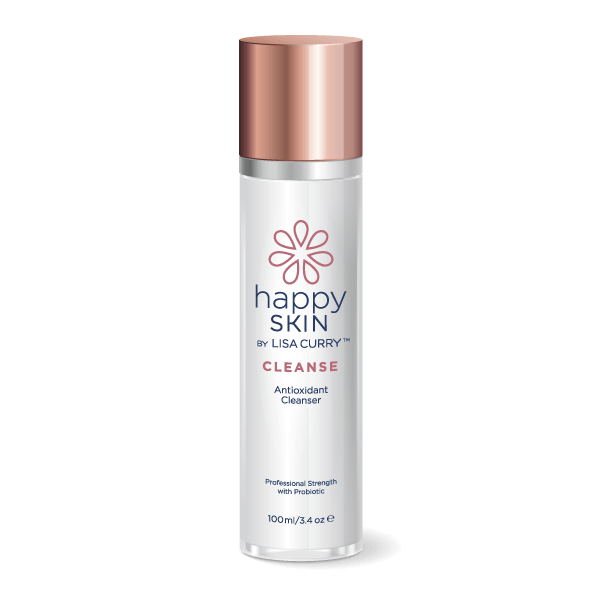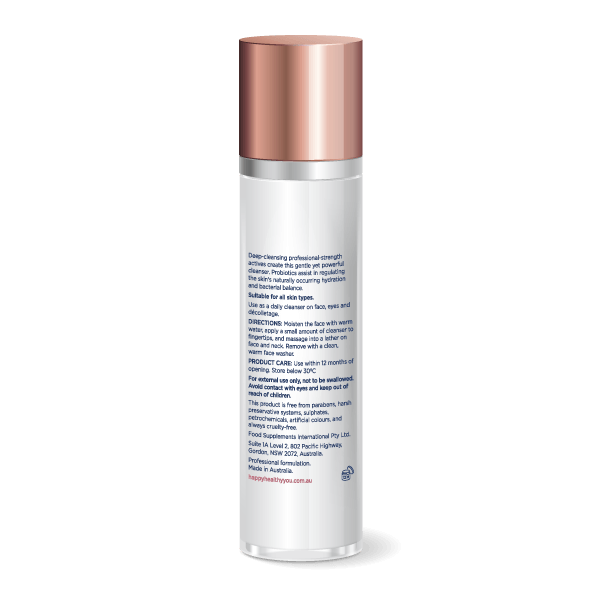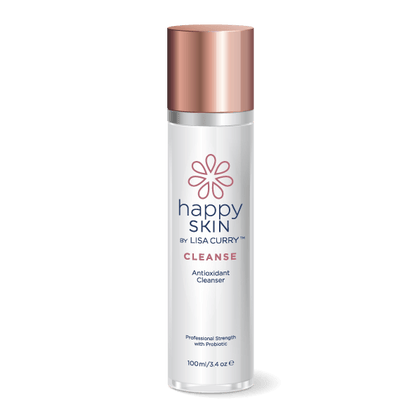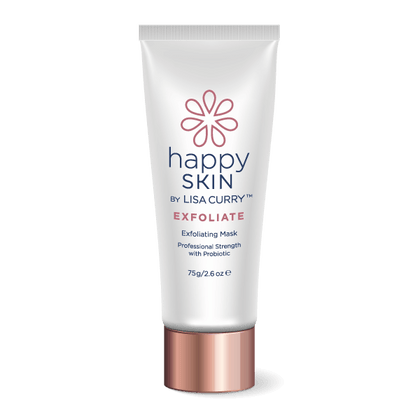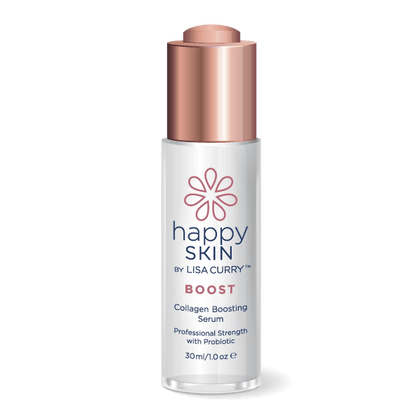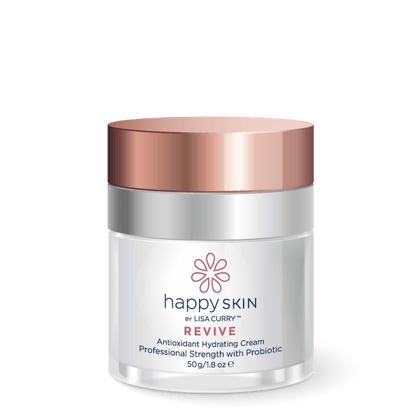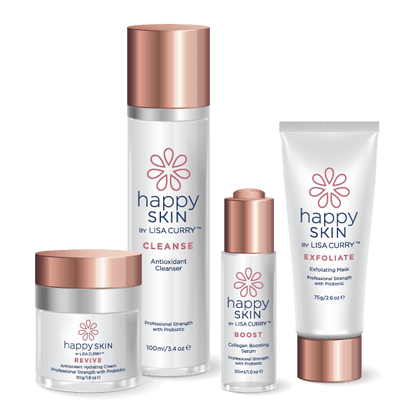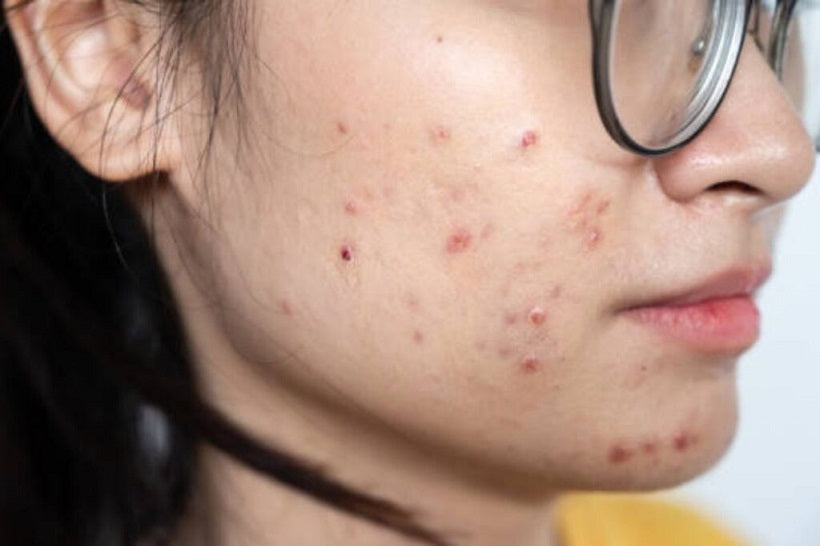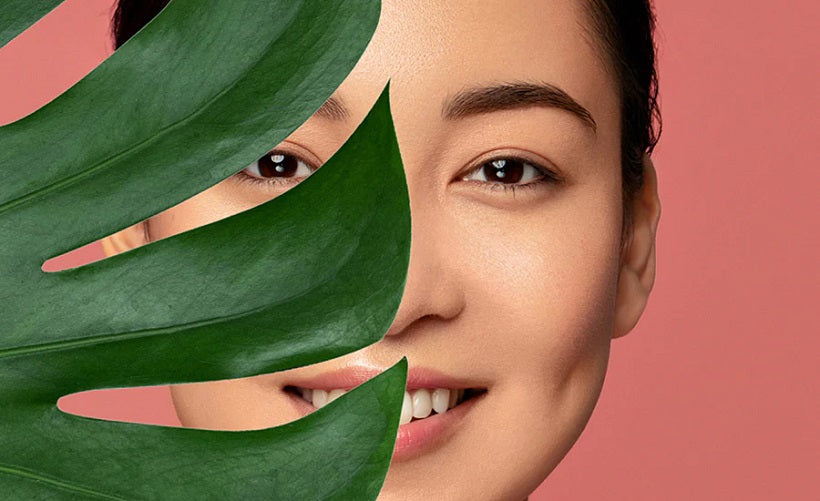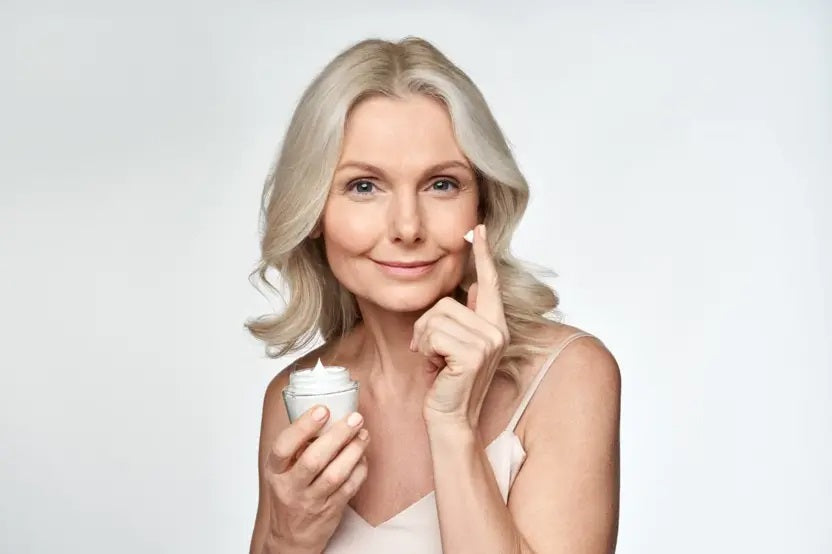Product information
Key information about our Happy Skincare by Lisa Curry
DESCRIPTION
Introducing our Antioxidant Face Cream Cleanser, a gentle yet powerful solution for clean and nourished skin. Infused with professional-strength actives, this cleanser effectively removes impurities while providing a boost of antioxidants. With the added benefit of probiotics, it helps maintain a healthy balance of hydration and skin bacteria.
Designed for all skin types, our Antioxidant Face Cream Cleanser offers a delightful scent of vanilla and coconut extract, making your cleansing routine a sensory experience.
To enjoy its benefits, simply incorporate this cleanser into your daily skincare ritual. Apply it gently on your face, eyes, and décolletage, ensuring a thorough cleanse that leaves your skin feeling refreshed and revitalized. Experience the transformative effects of our Antioxidant Face Cream Cleanser today.
FAQs
Is the Antioxidant Face Cream Cleanser suitable for sensitive skin?
Yes, the Antioxidant Face Cream Cleanser is formulated to be gentle and suitable for all skin types, including sensitive skin. Its professional-strength actives are carefully chosen to cleanse effectively without causing irritation.
Can I use the Antioxidant Face Cream Cleanser to remove eye makeup?
Absolutely! The Antioxidant Face Cream Cleanser is safe to use on the delicate eye area. Its gentle formula helps remove makeup, including eye makeup, effectively without causing stinging or discomfort.
How often should I use the Antioxidant Face Cream Cleanser?
For best results, we recommend using the Antioxidant Face Cream Cleanser as part of your daily skincare routine, both in the morning and evening. Consistency is key in maintaining clean and nourished skin.
Can I follow the Antioxidant Face Cream Cleanser with other skincare products?
Yes, absolutely! After cleansing with the Antioxidant Face Cream Cleanser, you can continue with your regular skincare routine. It serves as a great base for other products like serums and moisturizers, allowing them to penetrate the skin more effectively.
Does the Antioxidant Face Cream Cleanser leave a residue?
No, the Antioxidant Face Cream Cleanser is designed to rinse off cleanly, leaving your skin feeling refreshed and residue-free. After cleansing, your skin will be prepared for the next steps in your skincare regimen.
DIRECTIONS FOR USE
Use as a daily cleanser on face, eyes and décolletage.
SHOP OUR HAPPY SKIN RANGE
cleanse
Support your skin microbiome whilst gently cleansing at the same time.
exfoliate
Draw out the skin impurities twice a week while nourishing and hydrating.
boost
Powerful skin anti-inflammatory and rejuvenation tool to repair damaged skin.
Revive
High-strength antioxidant and anti-ageing formula balanced with probiotics.
the optimal skin guide
Beautiful skin comes from within. Our Optimal Skin Guide with meal suggestions creates the ideal internal biochemistry to heal inflamed skin, rebuild skin structure and protect against ageing. Follow our Optimal Skin Guide with meal suggestions to see noticeable results and continue the principles for long-term radiant skin.
The Optimal Skin Guide is free when you purchase The Collection.
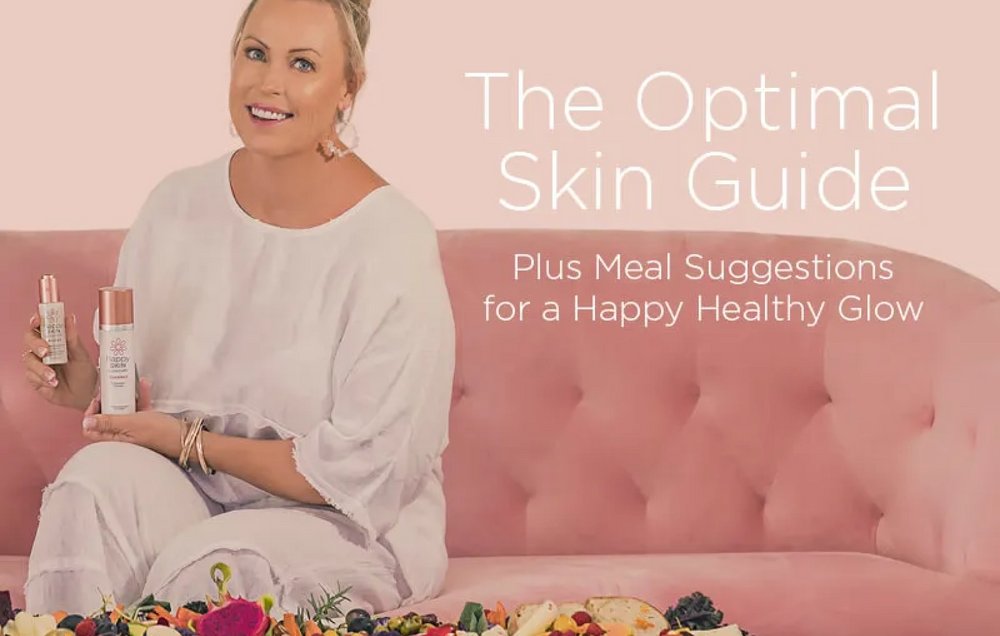
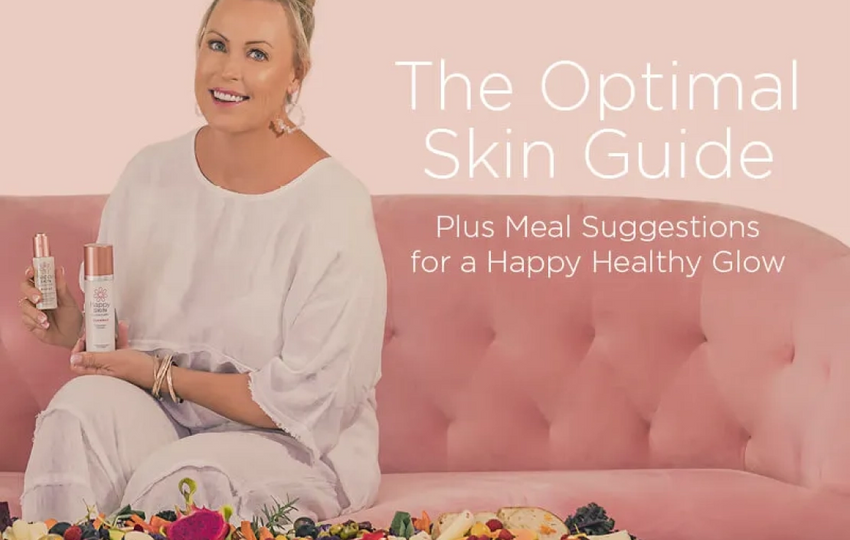

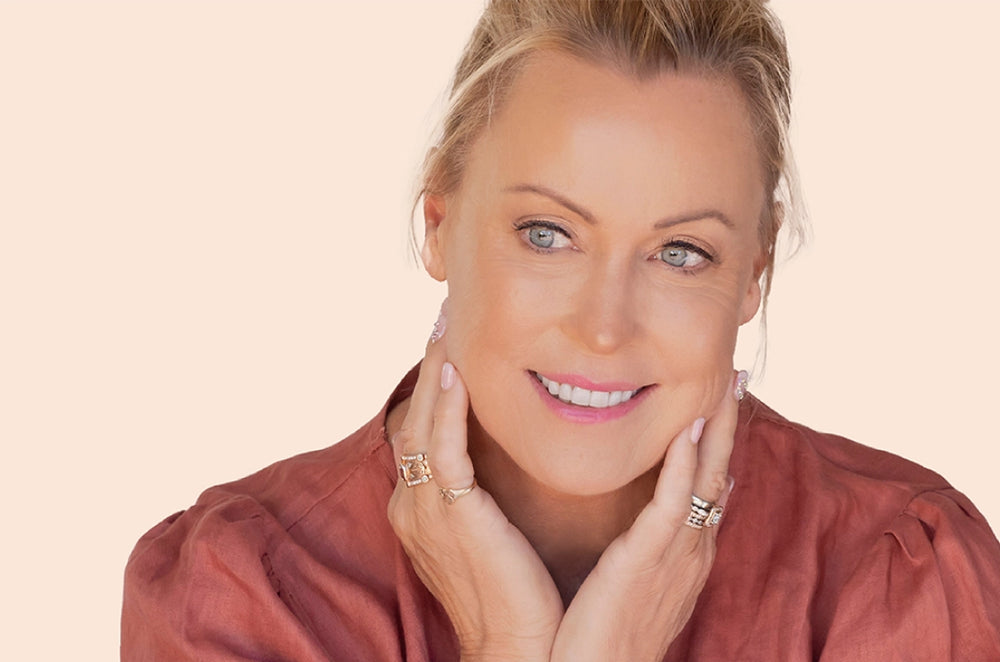
lisa’s philosophy
"My skin reflects my life - the good, the bad, the indifferent. Spending a lifetime in the water & sun has had harsh effects on my skin. Luckily, it's never too late to start a great skincare routine. Now I take better care of my skin with my beautiful corrective & preventative cosmeceutical skincare - a 4-step daily routine that suits my life! A life worth living - just like yours!"
HOLISTIC APPROACH
SUPPORT HEALTHY SKIN
NATUROPATH FORMULATED
FEATURED ARTICLES FOR SKIN HEALTH
Top 6 Healing Foods for Inflamed Skin
Inflamed skin not only hurts physically; it can also totally deplete you of self-esteem. It’s hard, especially when you feel...
6 Nutritionist Tips for Ultimate Skin Health
Looking for ways to enhance that dewy glow and get rid of red pigmentation? There are ways to ramp up...
5 Skin Care Routine Steps to Aid Menopause Symptoms
Your skin changes throughout your life, especially during milestones like puberty, pregnancy, and, of course, menopause. One of the biggest...
Top 6 Healing Foods for Inflamed Skin
Inflamed skin not only hurts physically; it can also totally deplete you of self-esteem. It’s hard, especially when you feel...
6 Nutritionist Tips for Ultimate Skin Health
Looking for ways to enhance that dewy glow and get rid of red pigmentation? There are ways to ramp up...
5 Skin Care Routine Steps to Aid Menopause Symptoms
Your skin changes throughout your life, especially during milestones like puberty, pregnancy, and, of course, menopause. One of the biggest...
Reviews speak for themselves...
- nikki f.Verified BuyerReviewingCleanse | Antioxidant Face CleanserI recommend this productAge Range 45 - 54Why did you buy this product? Fine Lines & Wrinkles, TextureRated 5 out of 5 stars1 year agoSooo good..
This cleanser is amazing, it removes all my make up & leaves my skin feeling soft & clean. No harsh scrubbing needed, followed by my Boost & moisturiser. Wouldn't be without it.. Love all the HHY products.. ❤️
Was this helpful? - Magdalini P.Verified BuyerReviewingCleanse | Antioxidant Face CleanserI recommend this productAge Range 55 - 64Rated 5 out of 5 stars1 year agoGentle, Non abrasive, Calming cleanser.
I have used the Happy Skin since its launch. As a mask, I apply it not to thick all over my face, and gently massage it in with warm water...then I sit back and relax for 15-20 minutes. Rinsing it off my face gives me the best feeling!! My skin feels like it has had a deep clean & feels soft n smooth all over. My face has a smoother skin tone now.
Was this helpful? - AnneReviewingCleanse | Antioxidant Face CleanserI recommend this productRated 5 out of 5 stars1 month ago5 Stars
Love this product - have been using it for a few years now and my skin is softer.
Was this helpful? - Gayle C.Verified BuyerReviewingCleanse | Antioxidant Face CleanserI recommend this productAge Range 55 - 64Why did you buy this product? RednessRated 5 out of 5 stars1 month agoCleanser
Love it!! Smells and feels amazing and doesn’t flare up my rosacea
Was this helpful?
FREQUENTLY ASKED QUESTIONS
Is Happy Skin by Lisa Curry™ Australian Made?
Yes! Happy Skin by Lisa Curry is proudly Australian made!
Who can use the probiotic skincare range?
The range has been specially formulated for everyone from teenagers and onwards. We designed the skincare range to be suitable for all skin types, including sensitive skin, and for all genders.
In what order do I apply my products?
We recommend our products be applied in the following order for optimal results:
- Cleanse - Exfoliate - Boost - Revive
We recommend waiting 30-60 seconds between steps. You may apply a sunscreen at the end.
Are there any nasties?
All products are free from nasties! No parabens, petrochemicals, Nanotechnology, or chemical preservatives.
Are these products organic?
Happy Skin by Lisa Curry is not an organic product, it’s a cosmeceutical product - created to deliver skin results from within. Our focus is age prevention and age correction so we pick active ingredients that will help reach these goals.
Cosmeceutical Skincare is a blend of science and nature. The combination of medical grade synthetics with highly active natural ingredients that can change the skin.
To make a skin difference, skincare requires active ingredients. In most cases, these do not come out of the ground - and if they do, they are a gentle skin persuasion, rather than a treatment active.
How should I get started?
We always recommend starting your new skin routine slowly and steadily. Gradually introduce each product to the skin and don’t overdo it to begin with. This allows your skin to become accustomed to the active ingredients.
Will these products help to support anti-ageing and wrinkles?
Without a doubt, this is one of the many benefits of using cosmeceutical probiotic skincare as opposed to cosmetics.
Are there any fragrances in these products?
Both the Cleanse and Exfoliate are wash-off products and have a beautiful light fragrance, as does our Revive treatment hydrator cream. Our fragrances are low allergen and are specifically chosen to promote a beautiful skin-friendly experience.
How long until I notice a difference?
This can differ from person to person, the status of their skin health, and what they have or haven’t been doing prior to looking after their skin.
Given that the skin cycle is approximately 28 days, it would be fair to say this is a good expectation before you see results. This is, of course, not to say many see results after a few days.
Do you offer skincare samples?
We do not currently offer samples, however we may offer this in 2022.
What makes Happy Skin By Lisa Curry different from other skincare on the market?
Our co-founder Lisa Curry struggled to find a skincare brand that was natural, highly effective, and had a simple 4-step process - especially when it came to being age-defying and delivering visible results for common skin concerns. When she looked into the science behind using probiotics, Lisa was blown away by how powerful probiotics in skincare could be.
Working with leading skin chemists, we perfected Happy Skin by Lisa Curry - offering probiotic cosmeceutical skincare that ticks all the boxes. It’s science- & holistic-focused, rich in the very best ingredients from nature (high-performance vitamins and probiotic actives), free from all nasties, vegan friendly, yet is also simple to use and understand, with just 4 products & steps for optimal skin health. Skincare that is holistic, highly effective and powered by probiotics.
What is The Optimal Skin Guide?
The Optimal Skin Guide plus meal suggestions is a 41-page PDF that you can download which contains steps about how to care for your skin from within and features research-based nutritional recipes to follow. It may help repair and enhance internal mechanisms associated with skin health.
Is Happy Skin by Lisa Curry cruelty-free, vegan, gluten-free?
Yes! These products are cruelty-free, gluten-free, vegan-friendly and non-comedogenic, meaning they won’t clog or block your pores.
How often should I use my products?
We believe skincare should be natural and powerful, yet simple to use and understand. Our simple 4-step skincare system is created for all skin types to deliver effective, science-backed antioxidants and probiotics to your skin with just 4 products (Cleanse, Exfoliate, Boost and Revive) used morning and night.
Cleanse: Twice daily. Morning & night (twice at night if removing makeup)
Exfoliate: 1-3 times a week only (depending on your skin)
Boost: Once or twice daily (depending on your skin)
Revive: Twice daily. Morning & night. Follow with SPF.
Are these products safe to use during pregnancy and breastfeeding?
Yes, all four products are safe for use during pregnancy and breastfeeding. For extra caution, you can do a patch test before use and confirm with your health practitioner that the products are suitable for you.
Why are these products great for all skin types?
They have been purposefully created to support age management; balanced microbiome; collagen production; hydration, and nourishment - beneficial to all skin types.
Can I use these products if I am prone to dry skin?
Absolutely! You must! Our skincare range has been formulated with plenty of hydrating and deeply nourishing ingredients, that are ideal for those with dry skin to replenish moisture levels and protect the skin from further dryness. Our products will not leave skin feeling dry after use. Our Revive moisturiser provides lasting locked-in hydration and is incredibly restorative.
Can I use these products if I have sensitive skin?
Yes, our skincare range has been formulated to be gentle and non-irritating. We use a variety of soothing, calming, and protective ingredients and only use natural fragrances. However, if your skin is highly sensitive, please do a patch test prior to using it on a larger area.
Can I use the products if I suffer from acne? Can I use these products if I have oily or combination skin?
All the Happy Skin by Lisa Curry products work beautifully on oily or combination skin.
The Niacinamide in Cleanse, Boost and Revive works to rebalance sebum (oil) production, whilst the fruit acids in Exfoliate support cell turnover and gentle exfoliation.
Niacinamide is also very effective on acne skins. Niacinamide is an anti-inflammatory that works to reduce the swelling and redness associated with acne. It also works to regulate the amount of acne-causing oil being produced by the glands in your skin.
Do I need to buy all the products to get results?
We recommend following our expert-curated steps for optimal results. However, each of these skincare products works powerfully alone, since each formula is individually designed to take your skin to new heights. You will still see results from using any of the 4 products as part of your routine.
Can I use one or some of your products with other skincare brands? Or do I have to have all four products?
We recommend using our 4-step Probiotic Skincare System for optimal skin results, however we do understand that you don't want to waste any of your current products, so you may select our individual products and use them with other brands. You will still see results from using any of our 4 products as part of your existing routine.
How long does the range last?
This varies from person to person, however we estimate on average that the 4 products, used morning and evening, following the directions for application will mean that the range will last around 2 months.
What does Lisa Curry say about skincare?
My whole life, I’ve tried my best to look after my body, mind and soul. I never thought that spending a lifetime in the water and sun could have harsh effects on my skin - until now. But I do know that it’s never too late to start having the best skin care routine possible.
My skin reflects my age and my life - the good, the bad, the indifferent. I have had my cake and eaten it too. In hindsight, I could have stayed out of the sun more, covered up more, eaten better, but as my mum says - it is what it is. And now I choose to eat better, move moderately, stress less, love and appreciate more and take better care of my skin with my beautiful cosmeceutical skin products. A simple, effective, corrective and preventative 4 step daily routine that suits my life. A life worth living - just like yours.
References
Abdel-Aal, E.-S. A. (2013). Dietary Sources of Lutein and Zeaxanthin Carotenoids and Their Role in Eye Health. Nutrients, 1169–1185.
Addor, F. (2018). Beyond photoaging: additional factors involved in the process of skin aging. Clinical, Cosmetic and Investigational Dermatology, 437–443.
Araviiskaia, E. B. (2019). The impact of airborne pollution on skin. Journal of the European Academy of Dermatology and Venereology.
Bahadorfar, M. (2014). A Study of Hydrotherapy and it's health benefits. International Journal of Research.
Bangash, H. K. (2012). Zinc and skin health: an overview. Human Health Handbooks - 1, 178–195.
BasemJ., B. A. (2017). The Effect of Smoking on Facial Aging Among Females in Saudi Arabia. Clinical Research in Dermatology: Open Access.
Berra, B. &. (2009). Zinc, Selenium and Skin Health: Overview of Their Biochemical and Physiological Functions. Nutritional Cosmetics, 139–158.
Boelsma, E. H. (2001). Nutritional skin care: health effects of micronutrients and fatty acids. The American Journal of Clinical Nutrition, 853–864.
Bolke, L. S. (2019). A Collagen Supplement Improves Skin Hydration, Elasticity, Roughness, and Density: Results of a Randomized, Placebo-Controlled, Blind Study. Nutrients, 2494.
Bragazzi, N., Sellami, M., Salem, I., Conic, R., Kimak, M., Pigatto, P., & Damiani, G. (2019). Fasting and Its Impact on Skin Anatomy, Physiology, and Physiopathology: A Comprehensive Review of the Literature. Nutrients, 249-.
Brinker TJ, E. A. (2017). A Dermatologist's Ammunition in the War Against Smoking: A Photoaging App. J Med Internet Res.
Capelli, B. T. (2019). Astaxanthin sources: Suitability for human health and nutrition. Functional Foods in Health and Disease, DOI: 10.31989/ffhd.v9i6.584.
Chen, Y. a. (2014). Brain-Skin Connection: Stress, Inflammation and Skin Aging. Inflammation & Allergy - Drug Targets, 177-190.
Commons, W. (n.d.). Skin Layers. https://commons.wikimedia.org/wiki/File:Skin_layers.png.
Couto, A. A.-S. (2018). Fasting and time of day independently modulate circadian rhythm relevant gene expression in adipose and skin tissue. BMC Genomics, 659–.
Crane, J. D. (2015). Exercise-stimulated interleukin-15 is controlled by AMPK and regulates skin metabolism and aging. Aging Cell, 625–634.
Dattola, A. S. (2020). Role of Vitamins in Skin Health: A Systematic Review. Current Nutrition Reports.
D’Orazio, J. J.-O. (2013). UV Radiation and the Skin. International Journal of Molecular Sciences, 12222–12248.
Drakaki, E. D. (2014). Air pollution and the skin. Frontiers in Environmental Science.
Evans, J. A. (2010). The Role of Phytonutrients in Skin Health. Nutrients, 903–928.
Fakhri, A. F.-S. (2019). The Neuroprotective Effects of Astaxanthin: Therapeutic Targets and Clinical Perspective. Molecules, 2630 - 2655.
Fakhri, S., Abbaszadeh, F., Dargahi, L., & Jorjani, M. (2018). Astaxanthin: A Mechanistic Review on its Biological Activities and Health benefits. Pharmacological Research.
Faria-Silvaa, C. A. (2020). Feeding the skin: A new trend in food and cosmetics convergence. Trends in food science and technology, 21 - 32.
Fisher, G. J.-C. (2002). Mechanisms of Photoaging and Chronological Skin Aging. Archives of Dermatology.
Hedayati, N. B. (2019). Beneficial effects of celery (Apium graveolens) on metabolic syndrome: A review of the existing evidence. Phytotherapy Research.
Hurtado-Alvarado, G. P.-G.-S.-M.-G. (2013). Sleep Loss as a Factor to Induce Cellular and Molecular Inflammatory Variations. Clinical and Developmental Immunology, 1-14.
Jobeili, L., Rousselle, P., Béal, D., Blouin, E., Roussel, A.-M., Damour, O., & Rachidi, W. (2017). Selenium preserves keratinocyte stemness and delays senescence by maintaining epidermal adhesion. Aging.
Kammeyer, A. &. (2015). Oxidation events and skin aging. Ageing Research Reviews, 16–29.
Kandola, K. B.-M. (2015). Oxidative stress - a key emerging impact factor in health, ageing, lifestyle and aesthetics. International Journal of Cosmetic Science, 1–8.
Kim, J. L.-E. (2018). Beneficial Effects of Marine Algae-Derived Carbohydrates for Skin Health. Marine Drugs.
Kim, K. E. (2016). Air pollution and skin diseases: Adverse effects of airborne particulate matter on various skin diseases. Life Sciences, 26–134.
Krutmann, J. B. (2017). The skin aging exposome. Journal of Dermatological Science, 152–161.
Labban, L. (2014). Medicinal and pharmacological properties of Turmeric (Curcuma longa): A review. Int J Pharm Biomed Sci, 17-23.
Lipner, S. R. (2018). Rethinking biotin therapy for hair, nail, and skin disorders. Journal of the American Academy of Dermatology, 1236–1238.
Lolou, V. &. (2019). Functional Role of Probiotics and Prebiotics on Skin Health and Disease. Fermentation, 41.
lv J, A. P. (2020). Selenium levels and skin diseases: systematic review and meta-analysis. Trace Elements in Medicine and Biology.
Malkanthi, E. D. (2020). A randomized, triple-blind, placebo-controlled, parallel study to evaluate the efficacy of a freshwater marine collagen on skin wrinkles and elasticity. Journal of Cosmetic Dermatology.
Manisha Singh, S. A. (2020). Benefits of Theobroma cacao and Its Phytocompounds as Cosmeceuticals. In M. K. Swamy, Plant-derived Bioactives. (pp. 509 - 522). Springer.
Mata, I. R. (2020). Benefits of turmeric supplementation for skin health in chronic diseases: a systematic review. Critical Reviews in Food Science and Nutrition.
Mohiuddin, A. (2019). Intermittent Fasting and Adding More days to Life. Journal of Gastroenterology and Hepatology Research.
Mooventhan, A. &. (2014). Scientific evidence-based effects of hydrotherapy on various systems of the body. North American Journal of Medical Sciences, 199 -.
Mukherjee, P. K. (2013). Phytochemical and therapeutic potential of cucumber. Fitoterapia, 227–236.
Myers, B. R. (2020). Sleep, Immunological Memory, and Inflammatory Skin Disease. Dermatology.
Naidoo, K. &. - M. (2017). Oxidative Stress and Ageing: The Influence of Environmental Pollution, Sunlight and Diet on Skin. Cosmetics.
Nema, N. K. (2010). Cucumis sativus fruit-potential antioxidant, anti-hyaluronidase, and anti-elastase agent Archives of Dermatological Research, 247–252.
Palupi, E. J. (2012). Comparison of nutritional quality between conventional and organic dairy products: a meta-analysis. Journal of the Science of Food and Agriculture, 2774–2781.
Parikh, M. M. (2019). Dietary Flaxseed as a Strategy for Improving Human Health. Nutrients, 1171.
Perumal, R. K. (2018). Collagen-silica bio-composite enriched with Cynodon dactylon extract for tissue repair and regeneration. Materials Science and Engineering, 297-306.
Petruk, G. D. (2018). Antioxidants from Plants Protect against Skin Photoaging. Oxidative Medicine and Cellular Longevity, 1–11.
Pilkington, S. M. (2010). Omega-3 Fatty Acids and Skin. Nutrition for Healthy Skin, 91–107.
Poljšak, B. &. (2012). Free Radicals and Extrinsic Skin Aging. Dermatology Research and Practice 2012.
Prakash, A. &. (2018). Acerola, an untapped functional superfruit: a review on latest frontiers. Journal of Food Science and Technology, 3373–3384.
Ravetti, C. B. (2019). Ascorbic Acid in Skin Health. Journal of Cosmetics, 58.
Saleem, F., & Soos., &. M. (2020). Biotin Deficiency. StatPearls Publishing.
Souyoul, S. A. (2018). Nutraceuticals: A Review. Dermatology and Therapy, 5–16.
Sowbhagya, H. B. (2013). Chemistry, Technology, and Nutraceutical Functions of Celery (Apium graveolensL.): An Overview. Critical Reviews in Food Science and Nutrition, 389–398.
Tominaga, K., Hongo, N., Fujishita, M., Takahashi, Y., & Adachi, Y. (. (2017). Protective effects of astaxanthin on skin deterioration. Journal of Clinical Biochemistry and Nutrition, 33–39.
Tsoy, N. (2013). Effect of Milk and Dairy Products upon Severity of Acne for Young People. World Applied Sciences Journal, 403-407.
Ulvestad, M. B. (2016). Acne and dairy products in adolescence: results from a Norwegian longitudinal study. Journal of the European Academy of Dermatology and Venereology, 530–535.
Uthpala, T. M. (2020). Nutritional Bioactive Compounds and Health Benefits of Fresh and Processed Cucumber (Cucumis Sativus L.). Sumerianz Journal of Biotechnology, 75-82.
Vaughn, A. R. (2016). Effects of Turmeric (Curcuma longa) on Skin Health: A Systematic Review of the Clinical Evidence. Phytotherapy Research, 1243–1264.
Wardle, J. D. (2013). Hydrotherapy: a forgotten Australian therapeutic modality. Australian Journal of Medical Herbalism.
Wells, M. L. (2016). Algae as nutritional and functional food sources: revisiting our understanding. Journal of Applied Phycology, 949–982.
Wiese, M. B. (2019). Prebiotic Effect of Lycopene and Dark Chocolate on Gut Microbiome with Systemic Changes in Liver Metabolism, Skeletal Muscles and Skin in Moderately Obese Persons. BioMed Research International.
Wright, K. P. (2015). Influence of sleep deprivation and circadian misalignment on cortisol, inflammatory markers, and cytokine balance. Brain, Behavior, and Immunity, 24- 34.
Wu, Q. L. (2016). The antioxidant, immunomodulatory, and anti-inflammatory activities of Spirulina: an overview. Archives of Toxicology, 1817–1840.
Xiao, J. (. (2020). Physical Exercise for Human Health. Advances in Experimental Medicine and Biology.
Yazdanparast, T. H. (2019). Cigarettes Smoking and Skin: A Comparison Study of the Biophysical Properties of Skin in Smokers and Non-Smokers. National Research Institute of Tuberculosis and Lung Disease, 163-168.











